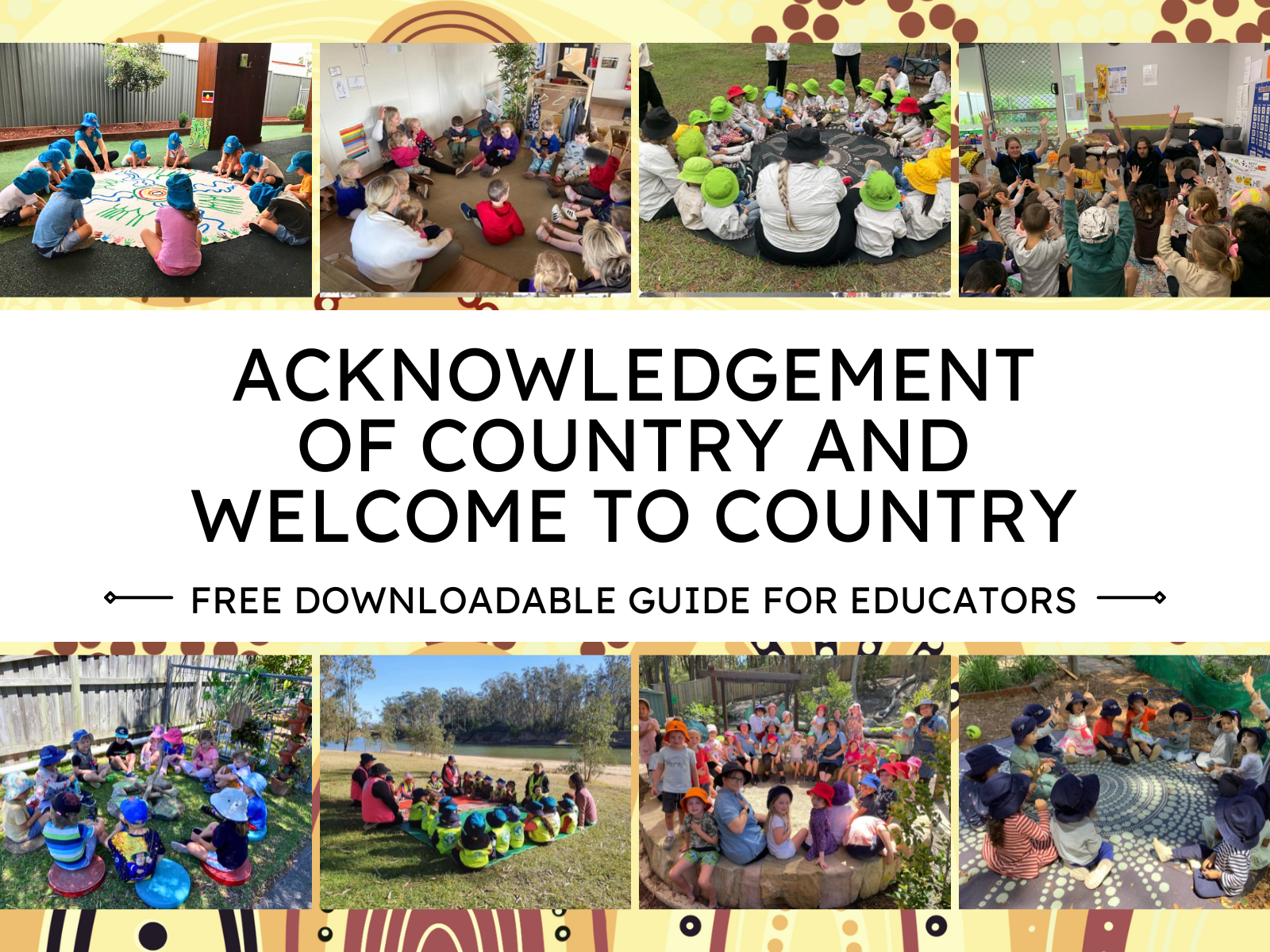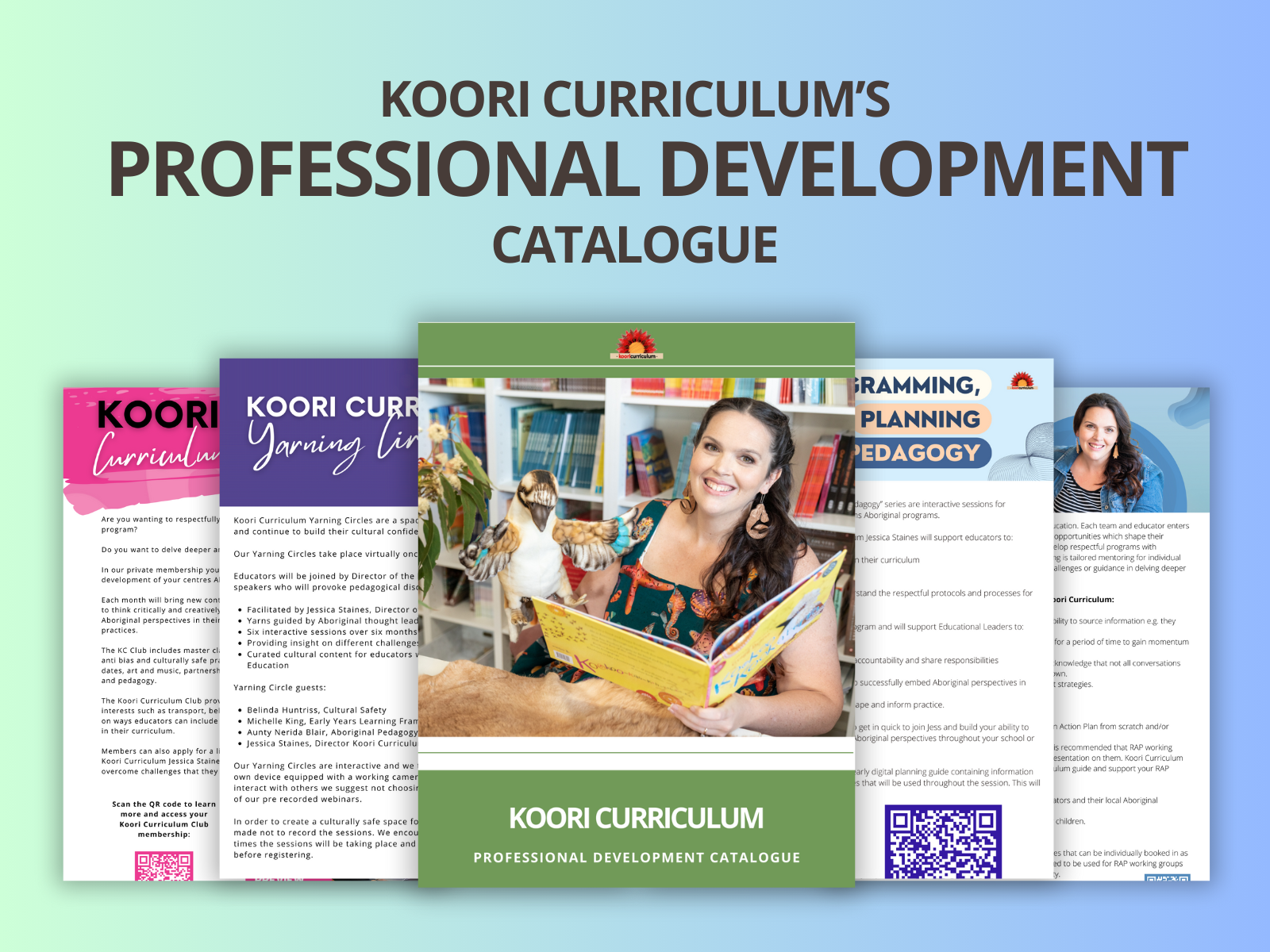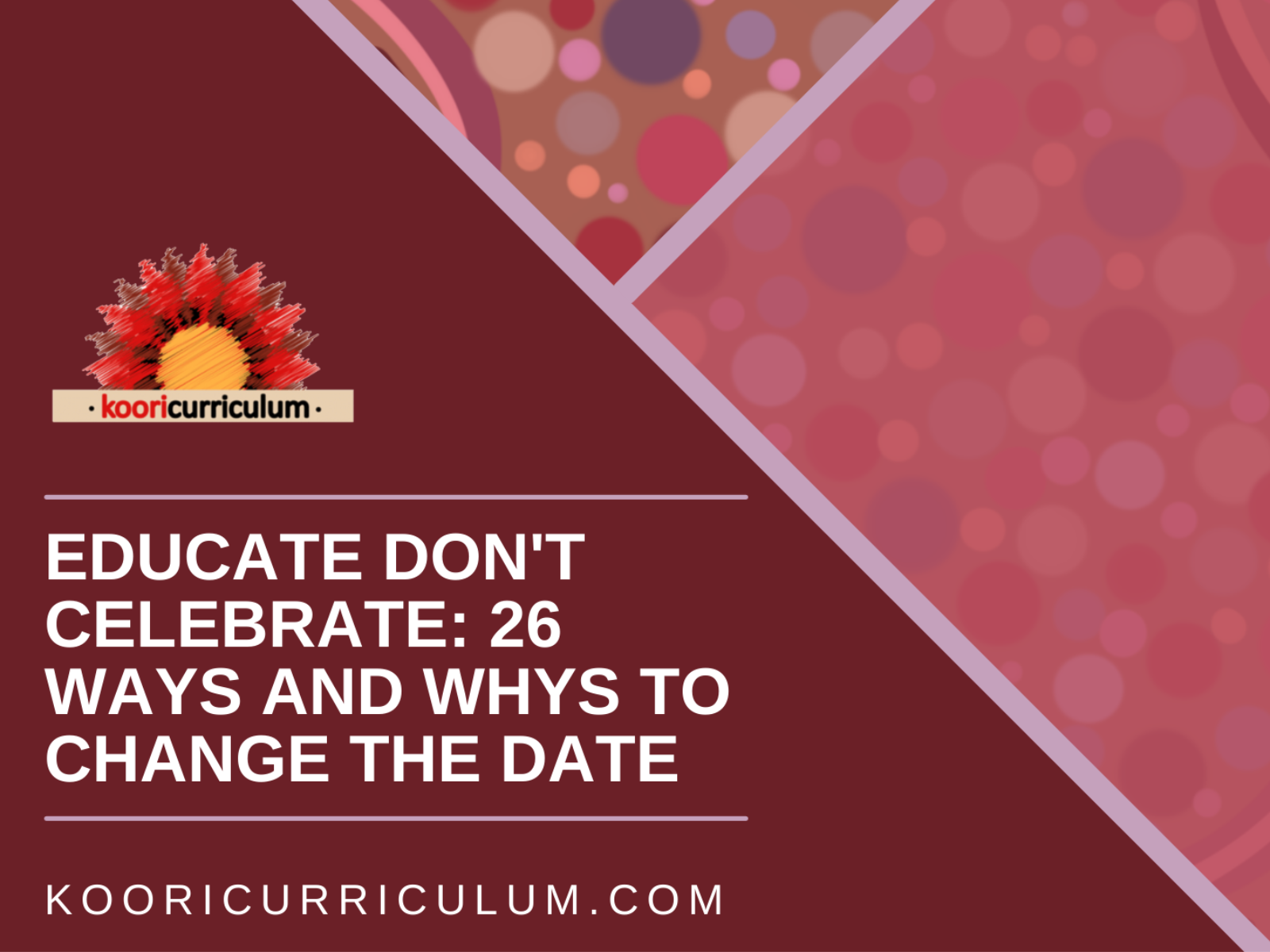
Books to learn about the 26th of January
The 26th of January is perhaps the most contentious date in the calendar year. For Aboriginal and Torre Strait Islander peoples this date is known as Invasion Day, Survival Day, Aboriginal Sovereignty Day and Day of Mourning.
Some facts to consider:
- Australia Day has only celebrated nationally since 1994.
- On the 26th January 1938 Aboriginal people protested against Australia Day and called it Day of Mourning.
- The Tent Embassy on the grounds of Old Parliament House in Canberra began on 26th January 1972.
- To mark the 200th anniversary of Invasion in 1988, 40 000 Aboriginal people and their supporters marched over the Harbour Bridge. It was the largest protest since the 1970s
- The Aboriginal flag was flown for the first time next to the Australian Flag on the 26th January 2013
Early Childhood Australia made a statement about Australia Day Celebrations in their publication “The Spoke” in 2018 “ECA stands alongside Reconciliation Australia in their call to change the date of Australia Day, and agrees with Chief Executive Karen Mundine that ‘a relatively small task’ would ‘demonstrate a willingness to address past wrongs’ and move to a stronger, more respectful relationship in the future.”
Read more here: Australia Day—it’s time to change - The Spoke – Early Childhood Australia's Blog
"Australia Day" by Stan Grant
As uncomfortable as it is, we need to reckon with our history. On January 26, no Australian can really look away. There are the hard questions we ask of ourselves on Australia Day.
Since publishing his critically acclaimed, Walkley Award-winning, bestselling memoir Talking to My Country in early 2016, Stan Grant has been crossing the country, talking to huge crowds everywhere about how racism is at the heart of our history and the Australian dream. But Stan knows this is not where the story ends.
In this book, Australia Day, his long-awaited follow up to Talking to My Country, Stan talks about reconciliation and the indigenous struggle for belonging and identity in Australia, and about what it means to be Australian. A sad, wise, beautiful, reflective and troubled book, Australia Day asks the questions that have to be asked, that no else seems to be asking. Who are we? What is our country? How do we move forward from here?
"Somebody's Land: Welcome to Our Country" by Adam Goodes & Ellie Laing. Illustrated by David Hardy.
An accessible picture book for young children that introduces First Nations history and the term 'terra nullius' to a general audience, from Australian of the Year, community leader and anti-racism advocate Adam Goodes and political adviser and former journalist Ellie Laing, with artwork by Barkindji illustrator David Hardy.
For thousands and thousands of years, Aboriginal people lived in the land we call Australia.The land was where people built their homes, played in the sun, and sat together to tell stories.
When the white people came, they called the land Terra Nullius. They said it was nobody's land. But it was somebody's land.
Somebody's Land is an invitation to connect with First Nations culture, to acknowledge the hurt of the past, and to join together as one community with a precious shared history as old as time.
Adam Goodes and Ellie Laing's powerful words and David Hardy's pictures, full of life, invite children and their families to imagine themselves into Australia's past - to feel the richness of our First Nations' history, to acknowledge that our country was never terra nullius, and to understand what 'welcome to our country' really means.
"Day Break" by Amy McQuire with Matt Chun
Day Break is the story of a family making their way back to Country on January 26. We see the strength they draw from being together, and from sharing stories as they move through a shifting landscape.
The story refocuses the narratives around ‘Australia Day’ on Indigenous survival and resistance, and in doing so honours the past while looking to the future. Confronting yet truthful, painful yet full of hope, Day Break is a crucial story that will open up a conversation on truth-telling for the next generation.
"Sorry Day" by Coral Vass and Dub Leffler
There was a hum of excitement. Flags flickered in the breeze as Maggie’s heart danced with delight. ‘This is a very special day!’ her mother said.
Maggie holds tight to her mother as they await the long-anticipated apology to show a willingness to reconcile the past for future generations. In the excitement of the crowd, Maggie loses touch of her mother’s hand and is lost.
In a time ‘long ago and not so long ago’ children were taken from their parents, their ‘sorrow echoing across the land’. As the Prime Minister’s speech unfolds Maggie is reunited with her mother. But the faces and memories of the stolen generation are all around them. Two stories entwine in this captivating retelling of the momentous day when the then Prime Minister of Australia, Kevin Rudd, acknowledged the sorrows of past and said ‘Sorry’ to the generation of children who were taken from their homes.
The book includes a foreword from Lee Joachim; Chair of Rumbalara Aboriginal Cooperative and Director of Research and Development for Yorta Yorta Nation Aboriginal Corporation.
"Say Yes: A Story of Friendship, Fairness and a Vote for Hope" by Jennifer Castles. Illustrated by Paul Seden.
Once there were two little girls who were best friends. They did everything together. As they get older, they weren't allowed to do the same things anymore. Because they looked different. Because of the law.
This is a story about the landmark 1967 Referendum, the two women who came together to change the law... and how the Australia people said YES.
"I love looking through this book, seeing the family faces, remembering the hard work - and the extraordinary response of the Australian People" - Associate Professor Lilin G. Bandler
"Heroes, Rebels and Innovators" by Karen Wyld & Jaelyn Biumaiwai
Be inspired and amazed by these incredible Aboriginal and Torres Strait Islander icons!
With colourful artwork and evocative writing, this book tells stories every Australian should know.
Powerful and exciting: here are seven inspiring stories about Aboriginal and Torres Strait Islander people from history. Each colourful spread in this illustrated book tells a compelling story.
"Finding Our Heart" by Thomas Mayor. Illustrated by Blak Douglas
’When we all came together at Uluru, we invited all Australian people to accept our voice and culture as a gift.’
Can you help us find the heart of the nation?
A book about understanding Australia’s past, so we can have a shared future.
"The Sacred Hill" by Gordon Hookey
"There was a sacred hill, It had been there for as long as time itself. Mobs of kangaroos, living on the sacred hill, looked after the land and the land looked after them.And they were happy..." Until a mob of noisy mynas disturbs the peace. Forced to leave their land, the kangaroos soon find themselves a long way from home.
"Walking Together" by Coral Vass. Illustrated by Dub Leffler
'We leave base camp and start our trek across this vast country. We invite you to walk with us in a movement of the Australian people for a better future ...'
Extract from the Uluru Statement from the Heart. From award-winning storytellers Coral Vass and Dub Leffler.
"Sorry Sorry" by Anne Kerr & Illustrated by Mardi Pitt
This Hardback edition could be a first step of informing these young children of a significant aspect of Australian history, with age-appropriate illustrations and dialogue. This book could also be an introduction to understanding the journey of reconciliation with Australia’s First Peoples.
The hope is that Sorry Sorry can be used to enable other educators, be they teachers, family or friends, to begin the conversation of Australia’s early history with the young people in their lives.
It is hoped that Sorry Sorry will go some way in helping build a platform where understanding, appreciation and respect for ‘All People’ can be built.
"Stories for Simon" by Lauren Briggs
A beautiful story of acknowledging the past and working together for a brighter future.
When Simon unwraps a beautiful boomerang wrapped in an old newspaper, he learns of the national apology to the Stolen Generations. Who were the Stolen Generations and how can saying ‘sorry’ help? Through a new friendship and a magnificent collection of stories, Simon gains a deep appreciation of the past and a positive vision for the future.
"Where the Forest Meets the Sea" By Jeannie Baker
My father says there has been a forest here for over a hundred million years," Jeannie Baker's young protagonist tells us, and we follow him on a visit to this tropical rain forest in North Queensland, Australia. We walk with him among the ancient trees as he pretends it is a time long ago, when extinct and rare animals lived in the forest and aboriginal children played there. But for how much longer will the forest still be there, he wonders?
Jeannie Baker's lifelike collage illustrations take the reader on an extraordinary visual journey to an exotic, primeval wilderness, which like so many others is now being threatened by civilization.














